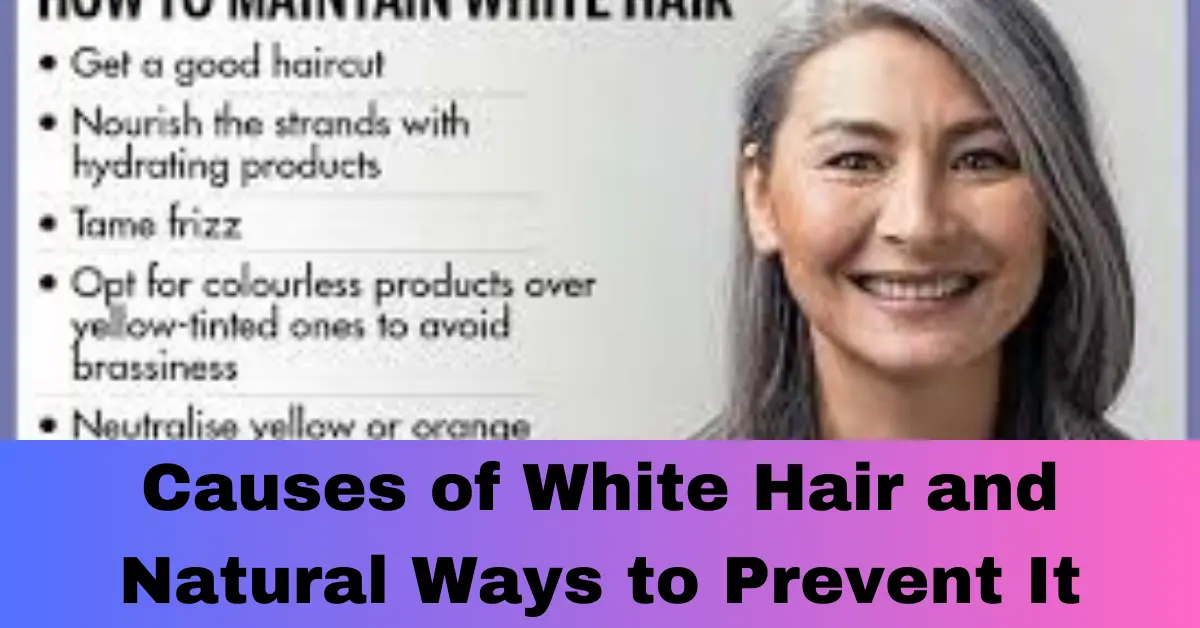Blog
Protecting Your Baby’s Teeth: The Best Pacifiers of 2024

When it comes to your baby’s health and comfort, choosing the best pacifier is crucial. Parents often worry about the impact of pacifiers on their baby’s teeth and oral development. The right pacifier can provide comfort and soothing effects without causing dental issues. This comprehensive guide will help you understand the importance of selecting the best pacifier for your baby’s teeth, the benefits of using a pacifier, and how to choose the right one. With the proper knowledge and tools, you can ensure your baby receives the comfort they need while maintaining healthy teeth development. For more detailed information, visit BIBS World.
Why Pacifiers Matter for Oral Health
Pacifiers play a significant role in soothing and calming infants, especially during their early months. However, parents often express concerns about the long-term impact of pacifier use on their child’s dental health. Understanding the connection between pacifiers and oral health is essential for making informed decisions.
How Pacifiers Affect Teeth Development
The use of pacifiers can influence the development of your baby’s teeth and oral structure. While pacifiers provide comfort, improper use or choosing the wrong type can lead to dental issues. It’s important to select a pacifier that supports healthy teeth development and avoids problems such as misalignment or overbite.
Benefits of Using a Pacifier
Pacifiers offer several benefits beyond soothing your baby. They can help reduce the risk of sudden infant death syndrome (SIDS), aid in developing self-soothing habits, and provide comfort during teething. Understanding these benefits can help you make an informed decision about using pacifiers.
Choosing the Best Pacifier for Teeth
Selecting the right pacifier involves considering various factors such as material, shape, and size. Orthodontic pacifiers, for example, are designed to support natural oral development and minimize the risk of dental issues. In this section, we’ll explore different types of pacifiers and how to choose the best one for your baby’s teeth.
Types of Pacifiers and Their Impact on Teeth
There are various types of pacifiers available, each with unique features and benefits. Understanding the differences can help you choose the best pacifier for teeth
Orthodontic Pacifiers
Orthodontic pacifiers are designed to support healthy oral development. They have a flattened bottom and rounded top, mimicking the natural shape of a mother’s nipple. This design helps distribute pressure evenly across the baby’s palate, reducing the risk of dental issues.
Silicone vs. Latex Pacifiers
Pacifiers are typically made from silicone or latex. Silicone pacifiers are durable, easy to clean, and resistant to odors. Latex pacifiers are softer and more flexible but may not last as long as silicone ones. Choosing the right material is essential for your baby’s comfort and dental health.
One-Piece vs. Multi-Piece Pacifiers
One-piece pacifiers are molded from a single piece of material, reducing the risk of parts breaking off and posing a choking hazard. Multi-piece pacifiers, on the other hand, may offer additional features but require more thorough cleaning to ensure hygiene.
How to Properly Use a Pacifier
Proper use of a pacifier is crucial for ensuring it benefits your baby without causing dental issues. This section will provide tips and guidelines for using pacifiers correctly.
Guidelines for Safe Pacifier Use
Following safety guidelines can help prevent potential dental issues and ensure your baby gets the most benefit from their pacifier. We’ll discuss how to clean pacifiers, when to replace them, and the best practices for pacifier use.
When to Introduce and Wean Off a Pacifier
Timing is important when it comes to introducing and weaning off a pacifier. We’ll explore the best times to start using a pacifier and when to begin the weaning process to ensure healthy teeth development.
Maintaining Oral Health While Using a Pacifier
Maintaining your baby’s oral health while using a pacifier involves regular dental check-ups and proper hygiene practices. We’ll provide tips for keeping your baby’s teeth and gums healthy while they use a pacifier.
FAQs
What are the benefits of using an orthodontic pacifier?
Orthodontic pacifiers support natural oral development by distributing pressure evenly across the palate, reducing the risk of dental issues such as misalignment and overbite.
How often should I replace my baby’s pacifier?
It’s recommended to replace pacifiers every 4-6 weeks or sooner if they show signs of wear and tear. Regular replacement ensures hygiene and safety.
Can pacifiers cause dental issues? Improper use or prolonged use of pacifiers can lead to dental issues such as misalignment or overbite. Choosing the right pacifier and following safe use guidelines can minimize these risks.
What is the best material for a pacifier?
Silicone pacifiers are durable, easy to clean, and resistant to odors, making them a popular choice for many parents. Latex pacifiers are softer and more flexible but may not last as long.
When should I start weaning my baby off the pacifier?
The American Academy of Pediatrics recommends starting the weaning process around 6 months of age to prevent potential dental issues and encourage self-soothing habits.
Conclusion
Choosing the best pacifier for your baby’s teeth is essential for their overall oral health and comfort. By understanding the different types of pacifiers, their impact on teeth development, and how to use them properly, you can make informed decisions that benefit your baby. Remember to follow safety guidelines, maintain good oral hygiene, and consult with your pediatrician or dentist if you have any concerns. For more detailed information on the impact of pacifiers on teeth, visit BIBS World.
Choosing the best pacifier for your baby’s teeth can significantly impact their oral health and overall comfort. With the right information and tools, you can make informed decisions that support healthy teeth development and provide your baby with the comfort they need. Remember to follow the guidelines for safe pacifier use, maintain regular dental check-ups, and choose the right type of pacifier to ensure your baby’s oral health is protected.
Blog
The Ultimate Guide to Choosing a Roofing Company

Introduction:
When it comes to protecting your home, the roof is one of the most critical components. A well-maintained roof not only adds aesthetic value to your property but also ensures the safety and comfort of your family. However, choosing the right roofing company can be a daunting task given the myriad of options available. This guide will help you navigate the process of selecting a reliable and professional roofing company to meet your needs.
Why You Need a Professional Roofing Company
1. Expertise and Experience: Professional roofing companies have the necessary skills and knowledge to handle various roofing projects. They are trained to deal with different roofing materials and can provide solutions tailored to your specific needs.
2. Quality Materials: Established roofing companies have access to high-quality materials that are not always available to the general public. Using top-notch materials ensures the longevity and durability of your roof.
3. Safety: Roofing can be dangerous work. Professional roofers are equipped with the right safety gear and are trained to handle potential hazards, reducing the risk of accidents.
4. Warranty and Insurance: Reputable roofing companies offer warranties on their workmanship and the materials they use. Additionally, they are insured, which protects you from liability in case of accidents or damages during the project.
Steps to Choosing the Right Roofing Company
1. Research and Recommendations
Start by researching local roofing companies. Look for companies with good reviews and ratings. Ask friends, family, and neighbors for recommendations. Word-of-mouth referrals are often the most reliable.
2. Check Credentials
Ensure the roofing company is licensed and insured. Licensing requirements vary by state, so verify the company’s credentials to ensure compliance with local regulations. Insurance is crucial as it protects you from liability in case of accidents or damages.
3. Ask for References
A reputable roofing company should provide references from previous clients. Contact these references to inquire about their experience with the company, the quality of work, and whether the project was completed on time and within budget.
4. Get Multiple Quotes
Obtain quotes from at least three different roofing companies. This allows you to compare prices, services, and warranties. Be wary of significantly low bids, as they may indicate subpar materials or workmanship.
5. Evaluate Experience and Expertise
Choose a company with extensive experience in the roofing industry. An experienced company is likely to have encountered and resolved a variety of roofing issues, ensuring they can handle your project efficiently.
6. Review Contract and Warranty
Carefully review the contract before signing. Ensure it includes details about the scope of work, materials to be used, project timeline, and payment terms. Additionally, understand the warranty provided for both materials and workmanship.
Common Roofing Services Offered
1. Roof Installation
Professional roofing companies offer new roof installation services for both residential and commercial properties. They help you choose the right materials based on your preferences, budget, and climate.
2. Roof Repair
Whether it’s a minor leak or significant damage from a storm, roofing companies provide repair services to fix issues and prevent further damage.
3. Roof Replacement
When repairs are no longer sufficient, a roof replacement may be necessary. A roofing company can assess the condition of your roof and recommend the best course of action.
4. Roof Maintenance
Regular maintenance is essential to extend the lifespan of your roof. Professional roofers can perform inspections, clean gutters, and address minor issues before they become major problems.
Conclusion
Choosing the right roofing company is crucial for the safety, durability, and aesthetic appeal of your home. By following the steps outlined in this guide, you can find a reputable and professional roofing company that meets your needs. Remember to research, check credentials, ask for references, get multiple quotes, evaluate experience, and review the contract and warranty thoroughly. Investing time in selecting the right roofing company will ensure your roof remains in excellent condition for years to come.
Blog
Causes of White Hair and Natural Ways to Prevent It

Introduction
Seeing those first strands of white hair can be a bit surprising, especially if they appear earlier than expected. While getting white hair is a natural part of aging, it can also happen prematurely due to various reasons. Whether it’s genetic, due to stress, or lifestyle choices, there are several factors that contribute to this change. But don’t worry! There are also plenty of natural ways to help keep your hair looking youthful and vibrant. In this article, we’ll explore the main causes of white hair and share some simple, natural tips to prevent it. Let’s dive in and discover how you can maintain your hair’s natural color and health.
“Uncover Oracle: Your ultimate resource for insightful Oracle tutorials, tips, and news. Explore comprehensive guides, expert advice, and the latest updates in the world of Oracle technology. Enhance your database management skills and stay ahead with Uncover Oracle.”
Causes of White Hair and Natural Ways to Prevent It
White hair, often seen as a sign of aging, can start to appear at any age. While getting white hair is completely normal as we grow older, some people may experience it prematurely. Let’s explore the reasons behind white hair and discover natural ways to prevent it.
Causes of White Hair
1. Genetics
Your genes play a major role in when you start getting Wellhealthorganic.com/know-the-causes-of-white-hair-and-easy-ways-to-prevent-it-naturally. If your parents or grandparents had early white hair, you might too. Genetics determine how your body produces melanin, the pigment responsible for hair color.
2. Age
As we age, our hair follicles produce less melanin, which leads to gray or white hair. This process typically begins in our 30s or 40s but can vary widely from person to person.
3. Stress
Long-term stress can lead to premature graying. Stress affects the production of melanin and can speed up the aging process. Finding ways to manage stress can help delay the appearance of white hair.
4. Nutritional Deficiencies
A lack of essential nutrients, especially vitamin B12, iron, and copper, can cause premature graying. These nutrients are important for keeping hair healthy and maintaining its color. Eating a balanced diet can help prevent deficiencies.
5. Health Conditions
Certain health issues, like thyroid disorders, vitiligo, and alopecia areata, can cause white hair. These conditions impact the pigmentation of the hair.
6. Smoking
Smoking can increase the likelihood of getting white hair early. The toxins in cigarettes can damage hair follicles and reduce melanin production.
Natural Ways to Prevent White Hair
1. Eat a Balanced Diet
Eating a diet rich in vitamins and minerals supports healthy hair. Foods high in vitamin B12, iron, copper, and antioxidants are particularly beneficial. Include leafy greens, nuts, seeds, and fruits in your meals.
2. Exercise Regularly
Exercise boosts blood circulation, which nourishes hair follicles and helps maintain hair color. Aim for at least 30 minutes of moderate exercise each day.
3. Manage Stress
Practicing stress-relief techniques like meditation, yoga, and deep breathing can reduce stress levels and help prevent premature graying. Make sure to get enough sleep and maintain a healthy work-life balance.
4. Use Natural Oils and Treatments
Natural oils such as coconut oil, almond oil, and amla oil can nourish your hair and scalp. These oils contain nutrients that promote healthy hair growth and prevent white hair. Regular scalp massages with these oils can also improve blood circulation and melanin production.
5. Try Herbal Remedies
Herbs like curry leaves, henna, and bhringraj have been used for centuries to prevent white hair. These can be applied as hair masks or taken as supplements to enhance hair health and color.
6. Avoid Smoking
Quitting smoking is one of the best ways to prevent premature white hair. Eliminating toxins from your body improves overall health and protects your hair from damage.
By understanding the causes of white hair and taking proactive steps, you can maintain your hair’s natural color and health for longer. Embrace these natural ways to keep your hair looking youthful and vibrant.
Why Understanding and Preventing White Hair is Important
1. Boosts Self-Confidence
Appearance Matters: For many people, their hair is a significant part of their identity. Maintaining its natural color can enhance self-esteem.
Feel Younger: Preventing premature white hair can help you feel more youthful and confident in your appearance.
2. Promotes Overall Health
Nutritional Balance: Focusing on a diet that prevents white hair ensures you get essential vitamins and minerals, promoting overall well-being.
Healthy Lifestyle: Stress management and regular exercise, which help prevent white hair, also contribute to a healthier lifestyle.
3. Prevents Underlying Health Issues
Early Detection: Understanding the causes of white hair can lead to early detection of potential health issues like thyroid disorders or nutritional deficiencies.
Holistic Approach: Adopting natural remedies and a balanced lifestyle can prevent not just white hair but also other related health problems.
4. Enhances Hair Health
Stronger Hair: Proper nutrition and care can lead to stronger, healthier hair.
Prevents Damage: Avoiding harmful habits like smoking protects your hair from damage, keeping it vibrant and healthy.
5. Encourages Natural and Sustainable Solutions
Natural Remedies: Using natural oils and herbs promotes sustainable and eco-friendly practices.
Less Chemical Use: By focusing on natural prevention methods, there’s less reliance on chemical dyes and treatments that can damage hair.
6. Reduces Stress
Proactive Care: Taking steps to prevent white hair can reduce anxiety about aging and appearance.
Improves Mental Health: Stress management techniques not only help with preventing white hair but also improve overall mental health.
Understanding and addressing the causes of white hair is not just about appearance; it’s about fostering a holistic approach to health and well-being. By taking care of your hair naturally, you’re also taking care of your body and mind, leading to a more balanced and confident life.
Common FAQs about White Hair and Natural Prevention
1. Why does my hair turn white?
Hair turns white when the hair follicles stop producing melanin, the pigment that gives hair its color. This can be due to aging, genetics, stress, nutritional deficiencies, health conditions, or smoking.
2. Can white hair turn black again?
Once hair turns white, it usually cannot turn black again naturally. However, you can prevent more hair from turning white by maintaining a healthy lifestyle and using natural remedies.
3. Does stress really cause white hair?
Yes, chronic stress can lead to premature white hair. Stress affects melanin production, which can accelerate the graying process.
4. What foods help prevent white hair?
Foods rich in vitamin B12, iron, copper, and antioxidants can help prevent white hair. Include leafy greens, nuts, seeds, fruits, and lean meats in your diet.
5. Are there any natural oils that can prevent white hair?
Yes, natural oils like coconut oil, almond oil, and amla oil can nourish the scalp and hair. Regular massages with these oils can help maintain hair color and promote healthy hair growth.
6. Can herbal remedies really help with white hair?
Yes, herbs like curry leaves, henna, and bhringraj have been traditionally used to prevent white hair. These can be applied as hair masks or consumed as supplements to improve hair health.
Conclusion
White hair can happen for various reasons, including genetics, aging, stress, and lifestyle choices. While you can’t completely stop the natural aging process, you can take steps to delay the onset of white hair. Eating a balanced diet, managing stress, using natural oils, and avoiding smoking can all help keep your hair looking youthful. By understanding the causes and using these natural methods, you can maintain your hair’s natural color and health for longer. Keep your hair vibrant and enjoy feeling confident and youthful!
“Don’t miss WWE SmackDown Episode 1491: thrilling matches, dramatic storylines, and unforgettable moments from your favorite WWE Superstars. Catch all the action now!”
Blog
Improving Digestive Health: Simple Tips for a Healthier Gut

Introduction
Digestive health is more important than you might thinke. It not only helps with breaking down food and absorbing nutrients, but it also plays a key role in your overall well-being. A healthy gut can boost your immune system, improve your mood, and even help you maintain a healthy weight. The good news is that improving your digestive health doesn’t have to be difficult. By making a few simple changes to
What is “Improving Digestive Health: Simple Tips for a Healthier Gut”?
“Improving Digestive Health: Simple Tips for a Healthier Gut” is all about making small, manageable changes to your lifestyle that can have a big impact on your digestive system. It involves incorporating healthy eating habits, staying hydrated, getting regular exercise, managing stress, and ensuring you get enough sleep. By following these simple tips, you can support your gut health, which in turn can improve your overall well-being. This guide provides practical advice and easy-to-follow steps to help you achieve and maintain a healthier digestive system
You should also get Wellhealthorganic.com simple ways to improve digestive system in Hindi.
Why Is Digestive Health Important?
Maintaining good digestive health is crucial for several reasons. Here are some key points to help you understand its importance:
1. Efficient Nutrient Absorption
Better Nutrient Uptake: A healthy digestive system ensures that your body absorbs vitamins, minerals, and other nutrients efficiently.
Supports Growth and Repair: Proper nutrient absorption is essential for the growth, repair, and overall functioning of your body.
2. Boosts Immune System
Gut Microbiome: A healthy gut is home to beneficial bacteria that help protect against harmful pathogens.
Stronger Immunity: About 70% of your immune system resides in your gut, making its health vital for a strong immune response.
3. Enhances Mental Health
Gut-Brain Connection: The gut and brain are closely connected through the gut-brain axis.
Mood and Well-being: A healthy gut can help reduce anxiety, depression, and improve overall mental well-being.
4. Prevents Digestive Issues
Avoids Discomfort: Good digestive health helps prevent common issues like constipation, bloating, and indigestion.
Reduces Chronic Conditions: It can also lower the risk of chronic digestive diseases such as Irritable Bowel Syndrome (IBS) and inflammatory bowel disease.
5. Supports Weight Management
Healthy Metabolism: A well-functioning digestive system aids in maintaining a healthy weight by regulating metabolism.
Reduces Obesity Risk: Proper digestion and nutrient absorption can help prevent overeating and obesity.
6. Improves Energy Levels
Efficient Energy Use: When your body absorbs nutrients effectively, it can use energy more efficiently, leading to better overall energy levels.
Reduces Fatigue: Good digestive health can help combat fatigue and improve daily productivity.
7. Promotes Longevity
Reduces Inflammation: A healthy gut helps reduce inflammation, which is linked to many age-related diseases.
Long-term Health: Maintaining digestive health can contribute to a longer, healthier life.
Understanding and prioritizing your digestive health can have far-reaching benefits for your entire body. By following simple tips to improve your gut health, you can enjoy these advantages and lead a healthier, happier life.
Common FAQs About Improving Digestive Health
1. What are the signs of a healthy digestive system?
A healthy digestive system typically shows signs like regular bowel movements, minimal bloating and gas, and little to no discomfort after eating. You should also feel energized and maintain a stable weight.
2. How much water should I drink for good digestion?
It’s generally recommended to drink at least 8 glasses (64 ounces) of water a day. Staying hydrated helps your digestive system break down food and absorb nutrients efficiently.
3. What foods are best for digestive health?
Foods high in fiber, like fruits, vegetables, whole grains, and legumes, are great for digestion. Additionally, probiotic-rich foods like yogurt and fermented foods can help maintain a healthy gut microbiome.
4. How can I incorporate more fiber into my diet?
You can increase your fiber intake by eating more fruits, vegetables, whole grains, nuts, and seeds. Start your day with a high-fiber breakfast like oatmeal or whole-grain cereal, and add more veggies to your meals.
5. What are probiotics and prebiotics?
Probiotics are beneficial bacteria that help maintain a healthy gut. They are found in foods like yogurt, kefir, sauerkraut, and other fermented products. Prebiotics are types of fiber that feed these beneficial bacteria, found in foods like bananas, garlic, and onions.
6. How does stress affect digestion?
Stress can negatively impact your digestive health, leading to issues like indigestion, constipation, or diarrhea. Managing stress through activities like meditation, yoga, or deep breathing exercises can help keep your gut healthy.
Conclusion
Taking care of your digestive health is easier than you think. By making small changes like eating a balanced diet, staying hydrated, exercising regularly, managing stress, and getting enough sleep, you can improve your gut health and overall well-being. Remember, a healthy gut means a healthier you. Start incorporating these simple tips today and feel the difference!
-

 Technology4 months ago
Technology4 months agoExploring Entretech.org: Unveiling the Future
-

 Technology4 months ago
Technology4 months agoGPT66X: Revolutionizing Language Models
-

 Eentertainment5 months ago
Eentertainment5 months agoThe Flower of Veneration Chapter 1: A Journey into Intriguing Realms
-

 Life Style4 months ago
Life Style4 months agoExploring Myfavouriteplaces.org:// blog: A Journey Begins
-

 Games4 months ago
Games4 months agoFour Digits to Memorize: Unlocking the Power of Memory
-

 Technology5 months ago
Technology5 months agoAmazons GPT55X: Revolutionizing Natural Language Processing
-

 Technology4 months ago
Technology4 months agoUnlocking the Potential of TrendzGuruji.me for Awareness
-

 Technology5 months ago
Technology5 months agoUnderstanding “qxefv” and Its Impact on Diverse Industries




















